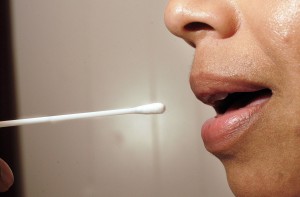
A state appeals court in San Francisco struck down a California law that requires police to collect DNA samples from anyone arrested on suspicion of a felony.
On Thursday, a three-judge Court of Appeal panel unanimously ruled that the measure, when applied to people who are arrested without a warrant and without any charges having been filed, violates the federal constitutional right to be free of unreasonable searches and seizures.
The 2004 voter-approved measure (Proposition 69, aka the DNA Fingerprint, Unsolved Crime and Innocence Protection Act) required that DNA samples be taken from anyone "arrested for or charged with a felony." The samples would then be included in a Department of Justice database accessible to other law enforcement agencies, the FBI, or as stated in the text of the law: "any other national or international law enforcement database or data bank system."
The Court's decision notes that the law required that the samples be taken "immediately following arrest, or during the booking … process or as soon as administratively practicable after arrest, but, in any case, prior to release on bail or pending trial or any physical release from confinement or custody."
Justice Anthony Kline wrote that the DNA collection "unreasonably intrudes on such arrestees' expectation of privacy and is invalid under the Fourth Amendment of the United States Constitution." He said:
What the DNA Act authorizes is the warrantless and suspicionless search of individuals, before a judicial determination of probable cause to believe they have committed a crime, for evidence of crime unrelated to that for which they have been arrested. The United States Supreme Court has never permitted suspicionless searches aimed at uncovering evidence of crime outside the context of convicted offenders.
"There is no doubt that an extraordinary amount of private personal information can be extracted from the DNA samples and specimens seized by the police without a warrant, collected and indefinitely retained by the (state) Department of Justice," Kline said.